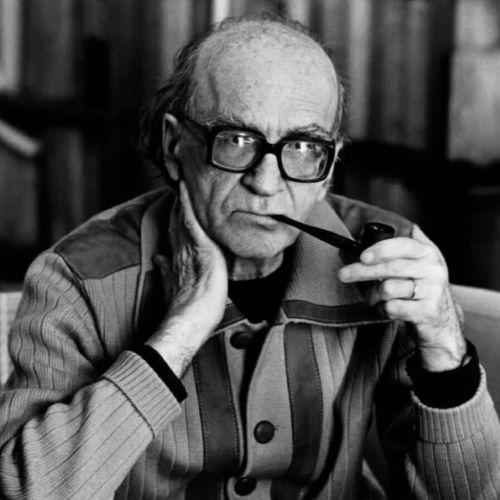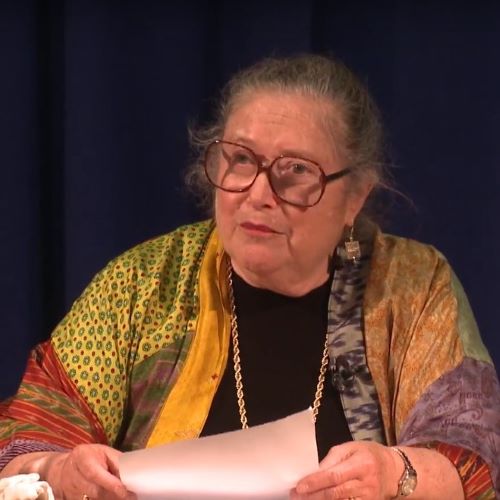
Mircea Eliade
Introduction
Mircea Eliade, born on March 13, 1907, in Bucharest, Romania, was a trailblazing historian of religion, philosopher, and novelist whose ideas profoundly influenced the study of mythology and religious experiences. As a professor at the University of Chicago, Eliade introduced a transformative perspective that moved beyond empirical analysis, highlighting the spiritual and mythological dimensions of human life. His innovative approach reshaped modern religious studies, bridging the gap between ancient myths and contemporary culture. Through his academic research and creative writings, Eliade left a lasting legacy that continues to inspire scholars and readers around the world.
Area of Expertise
Mircea Eliade specialized in religious studies and mythology, offering profound insights into the human connection to the sacred. He emphasized the centrality of myths in understanding human existence and explored how different cultures distinguish between the sacred and the profane. One of his most influential ideas, the concept of “eternal return,” suggests that myths and rituals allow individuals to reconnect with a timeless, sacred reality, linking ancient traditions with modern practices. Eliade’s comparative approach to religious symbols and myths revealed universal patterns across diverse cultures, providing valuable tools for interpreting the role of mythology in human life.
Books & Publications
Mircea Eliade was a prolific writer whose works spanned both academic and literary genres, leaving a lasting impact on the study of religion and mythology. Among his key scholarly texts are The Sacred and the Profane, which examines the contrast between sacred and secular realms, and Patterns in Comparative Religion, where he explores common themes across different religious traditions. His The Myth of the Eternal Return delves into how myths help people navigate repetitive experiences, while Shamanism: Archaic Techniques of Ecstasy studies ancient practices of spiritual ecstasy. Additionally, his A History of Religious Ideas provides a comprehensive analysis of the evolution of religious thought.
Beyond his academic contributions, Eliade wrote novels and short stories that reflected his deep engagement with myth and the sacred. His semi-autobiographical novel Maitreyi (also known as Bengal Nights) captures his experiences in India, exploring cross-cultural encounters. Other notable works of fiction include The Forbidden Forest, Youth Without Youth, Miss Christina, and With the Gypsy Girls. These literary works, alongside his academic texts, continue to shape discussions on mythology, spirituality, and human experience.
Research & Contributions
Mircea Eliade’s influence on the study of mythology and religion is immense. His approach combined thorough historical analysis with in-depth interpretations of religious texts, offering a rich, multidimensional perspective on spiritual life. By introducing existential analysis, Eliade explored how myths help individuals navigate and understand their own existence. His extensive comparative studies across cultures revealed universal themes in religious experiences, deepening our understanding of the shared aspects of human spirituality.
In addition to his research, Eliade played a pivotal role in advancing religious studies as a discipline, teaching and mentoring students while also collaborating with fellow scholars. His leadership in academic communities helped refine methodologies for studying mythology, establishing him as a respected figure in intellectual circles. One of his key contributions was the concept of hierophanies, which posits that manifestations of the sacred are essential to religious life. Eliade argued that myths and rituals not only commemorate these sacred events but also provide a way for individuals to engage with the divine in real-time during rituals.
Eliade also emphasized the commonality of certain religious symbols and myths, suggesting that they could serve as a bridge between different cultures and historical periods. His comparative work has opened up valuable dialogues between diverse religious traditions, highlighting the ways in which shared symbols and rituals shape human spiritual experiences.
Awards & Recognitions
Mircea Eliade’s work in religious studies earned him widespread recognition and numerous honors throughout his career. Among his prestigious accolades, he was posthumously elected to the Romanian Academy in 1990, acknowledging his profound impact on both Romanian and global scholarship. He also received several honorary doctorates from esteemed universities, reflecting his significant contributions to the fields of religion and philosophy.
In addition to academic distinctions, Eliade’s literary work was celebrated for its exploration of existential themes interwoven with religious ideas, earning him recognition within literary and philosophical circles. He was even nominated for the Nobel Prize in Literature in 1957 and 1968. Eliade’s legacy is further honored through international symposiums and conferences that continue to revisit his influence on contemporary thought. His work remains a cornerstone for students and scholars in the study of mythology, religion, and literature.
Social Media Profiles
Though Mircea Eliade passed away long before the rise of social media, his legacy continues to thrive online. Platforms like Facebook and Twitter host numerous academic groups and institutions dedicated to sharing Eliade’s writings, quotes, and research, sparking ongoing discussions about his work and ideas. YouTube also serves as a hub for lectures and seminars that analyze his theories, allowing both scholars and enthusiasts to engage with his contributions in a visual format.
In academic circles, platforms like ResearchGate and Academia.edu feature papers and discussions influenced by Eliade’s work, ensuring that his ideas remain relevant to contemporary studies in religious theory and mythology. While Eliade himself isn’t present on these platforms, his enduring influence continues to shape modern scholarship and foster dialogue across various online communities.
Bibliographic Sources
Allen, Douglas. Myth and Religion in Mircea Eliade. Garland Publishing, 1998.
Library Acropolis. “A Deeper Understanding of Myth: The Contribution of Mircea Eliade”.
University of Chicago. “Guide to the Mircea Eliade Papers 1926-1998”.
Eliade, Mircea. The Sacred and the Profane: The Nature of Religion. Houghton Mifflin Harcourt, 1959.
Wikipedia. “Mircea Eliade”.






